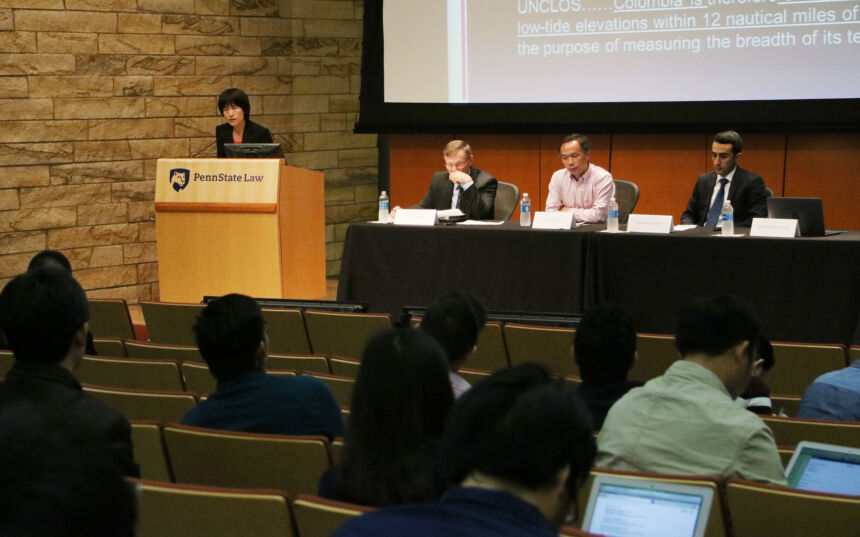October 06, 2016
Panel discussion on the South China Sea ruling brings scholars together

UNIVERSITY PARK, Pa. – The law of the sea is complex, and the recent arbitration case between China and the Philippines is no exception. On Wednesday, Oct. 5, scholars and practitioners from around the world came together at the School of International Affairs to discuss this dispute, its legal ramifications, and its impact on international relations at large in “The Hague Ruling on the South China Sea: The Divergence of Law and Diplomacy.”
The seminar centered around three separate panel discussions:
- The Role and Reach of International Arbitration in Disputes between Sovereign States
- The International Relationships and Interests Behind the South China Sea Disputes, and
- The Principal Legal Issues in the Disputes Between China and the Philippines over the South China Sea.
Each panel was moderated by a member of the Penn State Law or School of International Affairs faculty: Law Professor Catherine A. Rogers, Professor of Practice Joseph M. DeThomas, and Interim Dean James W. Houck, respectively.
The subject was of particular interest as the United States’ relationship with China comes into the equation as the ruling plays out. “One of the reasons this dispute is so dangerous is because it creates friction between two of the largest world powers,” said DeThomas.
“It is amazing how U.S. and China relations have evolved so greatly in business, but military and strategic relations with the countries have evolved very little,” said Guan Wang, chief political correspondent for CCTV America .
The seminar was presented by The Penn State Research and Career Development Network for Law & International Affairs, The Center for Global Studies, The Penn State International Arbitration Group, and The Foundation for Law and International Affairs.
In addition to Wang, panelists included Oluwaseun Ajayi, complex litigation practitioner in Washington, D.C.; Thomas E. Carbonneau, Samuel P. Orlando Distinguished Professor of Law and director of the Institute of Arbitration Law and Practice at Penn State Law; He Jiang, professor and doctoral supervisor in the Law School of Zhongnan University of Economics and Law; Ekrem Korkut, S.J.D. candidate at Penn State Law; Di Li, Ph.D. candidate at Middlesex University; Flora Sapio, honorary fellow at the Australian Centre on China in the World; Qiongqiong Tang, assistant professor at Shanghai University of International Business and Economics School of Law and visiting scholar at St. John’s University School of Law; and Liang Zhang, Ph.D. candidate at International Economic Law Institute, Xiamen University.
